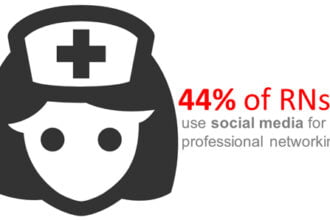No matter what you’ve heard, content isn’t that monarchical creature known as the king — it’s more like your brand’s best friend. It saturates all your media channels, and helps you publicly define your corporate identity so it becomes a recognizable entity that people talk about. And yet of all the ways that content flourishes digitally, its true home is your blog. Keeping your blog fresh and alive with freely dispensed wellness facts and tips is the only way to go.
No matter what you’ve heard, content isn’t that monarchical creature known as the king — it’s more like your brand’s best friend. It saturates all your media channels, and helps you publicly define your corporate identity so it becomes a recognizable entity that people talk about. And yet of all the ways that content flourishes digitally, its true home is your blog. Keeping your blog fresh and alive with freely dispensed wellness facts and tips is the only way to go.
 It’s time to stop falling into the trap of seeing your blog as an accessory to your product and/or service pages: nobody really wants to read your reflections about why they should choose you over a competitor at this particular contact point. In essence, consumers engage blogs not because they want to buy something, but because they enjoy the first-person approach the blog form embodies and are looking for a perspective. Instead of misusing this electronic real estate as an accessory sales space, we recommend you house your free health information there, under the altruistic aegis of Patient Education.
It’s time to stop falling into the trap of seeing your blog as an accessory to your product and/or service pages: nobody really wants to read your reflections about why they should choose you over a competitor at this particular contact point. In essence, consumers engage blogs not because they want to buy something, but because they enjoy the first-person approach the blog form embodies and are looking for a perspective. Instead of misusing this electronic real estate as an accessory sales space, we recommend you house your free health information there, under the altruistic aegis of Patient Education.
Rather than sell the brand explicitly, sell it implicitly by becoming a healthcare partner to your audience members, who will return repeatedly, once you educate them about health care topics that they find pertinent to themselves and their families. Become a thought leader, the go-to hub where customers and their friends look for the voice of reason: in short, a digital destination.
Announcements about new physicians or equipment belong in your newsfeed, not your blog, which is not the place people expect to be introduced to them. Don’t forget that blog is short for weblog: a log or record of opinions shared by someone who is attempting to create a learning community, not to push a product or service line on someone.
When you write your blog, always keep health literacy in mind — not everyone is going to understand the lingos associated with the medical field, so always break things down and speak in simple, yet colorful terms. Just because you’re delivering knowledge in layman’s terms, you don’t have to sacrifice style.
A seasonal focus is always advised. For example, it’s wintertime in New England, so you might want to run a blog that presents sledding safety tips — assuming your hospital is in the Northeast. If you’re in Florida, a wintertime blog might involve a discussion of why even people living in tropical climates can benefit from getting inoculated against the flu.
The ultimate blogging ideal is transparency. You want to create informative copy that entertains as it educates, all written concisely and with an eye to how a non-expert would communicate. It’s basically the Elizabethan ideal set forth by the poet Sir Philip Sidney way back in the 16th century: writing that teaches as it delights. If it worked for the Renaissance, it can work for you!








